Shanghai looks set for mini baby boom
Updated: 2014-02-26 02:20
By WANG HONGYI in Shanghai (China Daily)
|
||||||||
Reform of one-child policy unlikely to fix population imbalance: expert
Shanghai is likely to experience a short-lived baby boom, but the city will not solve the problem of its aging population anytime soon, an expert said after the city relaxed its one-child policy on Tuesday.
Zhou Haiwang, deputy director of the Institute of Urban and Population Development Studies at the Shanghai Academy of Social Science, said the policy change will bring a sharp rise in the city's total population, but the proportion of residents over 60 will keep rising.
"The baby boom is expected to last for two to three years," Zhou said. "But the city will continue to have an imbalanced population structure."
On Tuesday, Shanghai's legislature followed its counterparts in other areas, including Beijing, Tianjin, Zhejiang, Jiangxi and Anhui, to approve the amendment of a law to allow couples to have a second child if either parent is an only child.
The rule will come into effect on March 1, with the added stipulation that at least one of the prospective parents must possess a Shanghai hukou, or household registration.
"The revision will help improve the city's imbalanced population structure," said Xu Jianguang, director of the Shanghai Health and Family Planning Commission.
Under the new policy, about 400,000 more families in the city will be eligible to have a second baby, and demographers said an additional 20,000 babies could be born in the next three years.
But Zhou said Shanghai will see a drop in births from 2016, when the number of women at prime childbearing age will decrease by 30 percent and the baby boom stimulated by the new policy ends. But the proportion of elderly residents will keep rising, he said.
According to the Shanghai Health and Family Planning Commission, the city has more than 3.67 million registered residents aged 60 and above, more than 25 percent of the population. By 2020, the ratio may rise to one-third.
Authorities said they are prepared for the baby boom expected from the new policy.
Huang Hong, deputy director of the Shanghai Health and Family Planning Commission, said the city will continue to increase the number of beds in maternal and child care institutions and promote the establishment of pediatric teams in district and community-level medical bodies. The Shanghai Education Commission said it will adjust the allocation of educational resources based on population changes.
Child-rearing costs
Both official and unofficial figures suggest that relatively few couples in Shanghai are keen on having a second child, due in large part to the costs of raising children.
Before the policy change, there were more than 2 million couples in the city already eligible to have a second child, as both of the couples were the only child in their family. However, in the past five years, fewer than 8,000 families gave birth to a second baby, according to the Shanghai Health and Family Planning Commission.
A survey conducted by the news portal Sina.com in 2013 found that about 70 percent of the 1,200 Shanghai residents polled said they did not want another child. The main reason given was the cost of raising another child.
"Raising a child is already expensive enough, and we cannot afford to feed another mouth," said Li Jia, who has given up on the idea of having a second baby with her husband, despite being eligible.
According to reports in Chinese media, the cost of raising a child in Shanghai is at least 1 million yuan ($163,000) from birth to university graduation, with the cost of education accounting for half of a family's monthly income.
"The high cost of raising a child has been a big concern for many couples, especially those in big cities," said Zhai Zhenwu, director of the School of Sociology and Population Studies at Renmin University of China.

 Pentagon chief plans to reduce US army size
Pentagon chief plans to reduce US army size
 2nd Madoff aide testifies, denies knowledge of fraud
2nd Madoff aide testifies, denies knowledge of fraud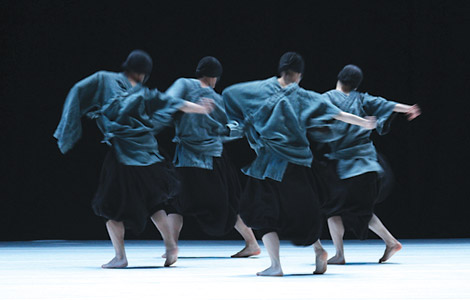
 TAO Dance troupe premieres '5' at NYU
TAO Dance troupe premieres '5' at NYU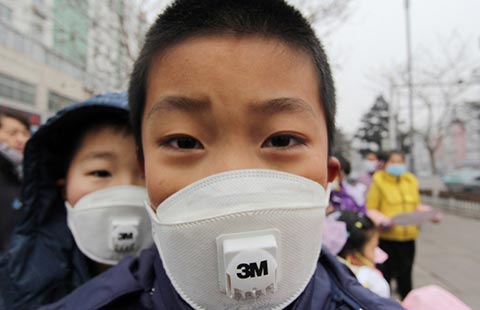
 Top 10 cities with worst smog in China
Top 10 cities with worst smog in China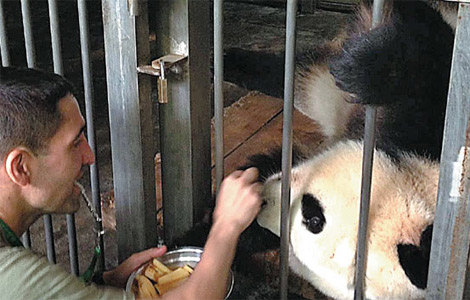
 Playing with pandas
Playing with pandas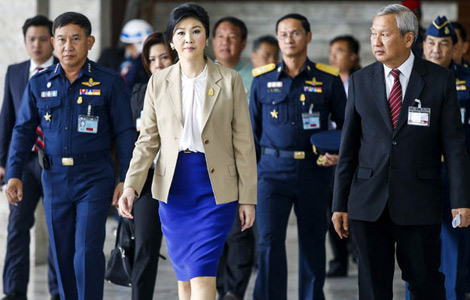
 Explosion, gunfire ring out near Bangkok protest site
Explosion, gunfire ring out near Bangkok protest site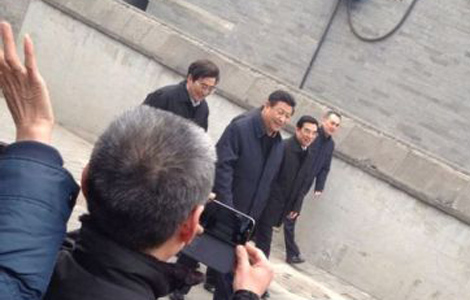
 President Xi spotted at popular hutong in Beijing
President Xi spotted at popular hutong in Beijing
 Guide dogs trained in NE China
Guide dogs trained in NE China
Most Viewed
Editor's Picks

|

|

|

|

|

|
Today's Top News
Xi stresses core socialist values
Beijing protests US post on Tibet
President Xi pops in to Beijing's hutong
Huawei straps on smartwatch play
Pentagon plans to shrink army
Fight over race in admissions
US ready to aid Ukraine financially
Consumer economy 'not' happen
US Weekly

|

|





